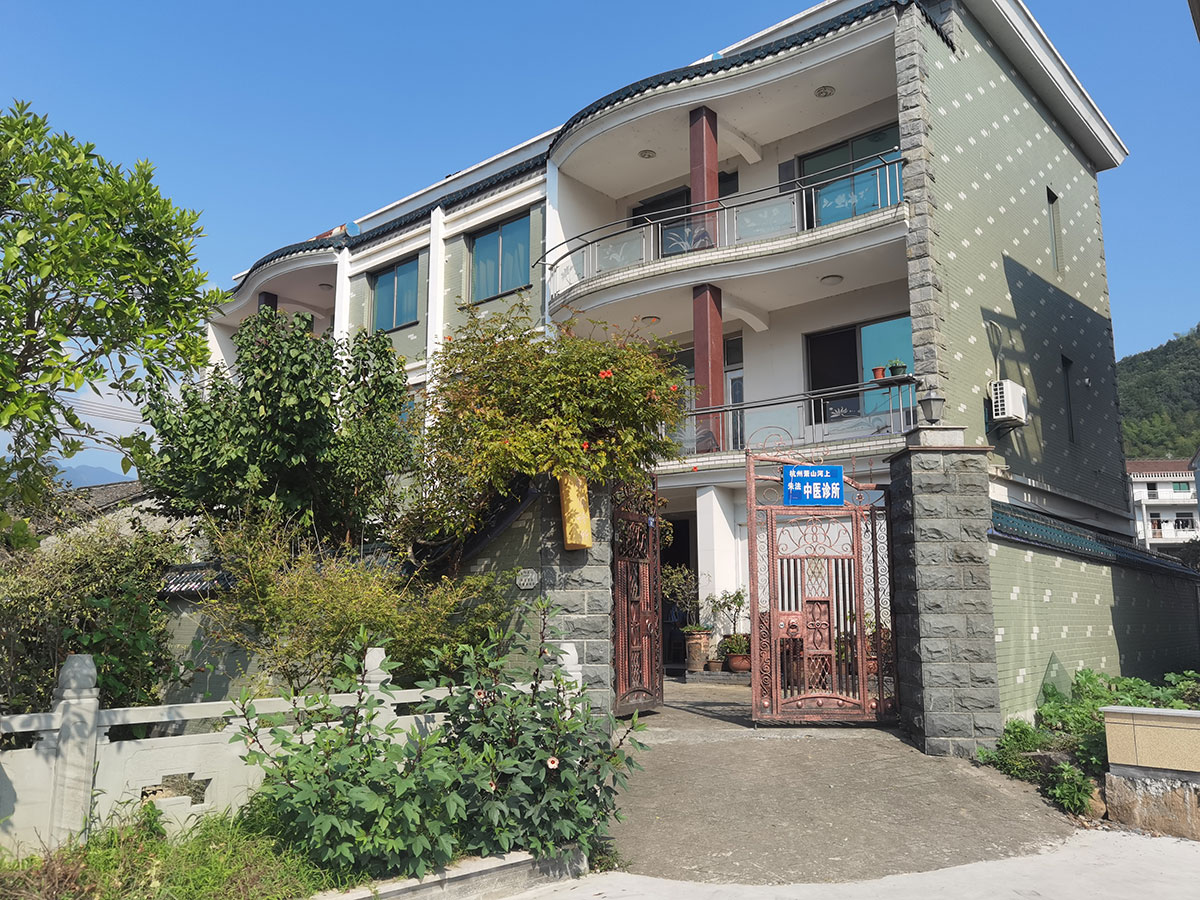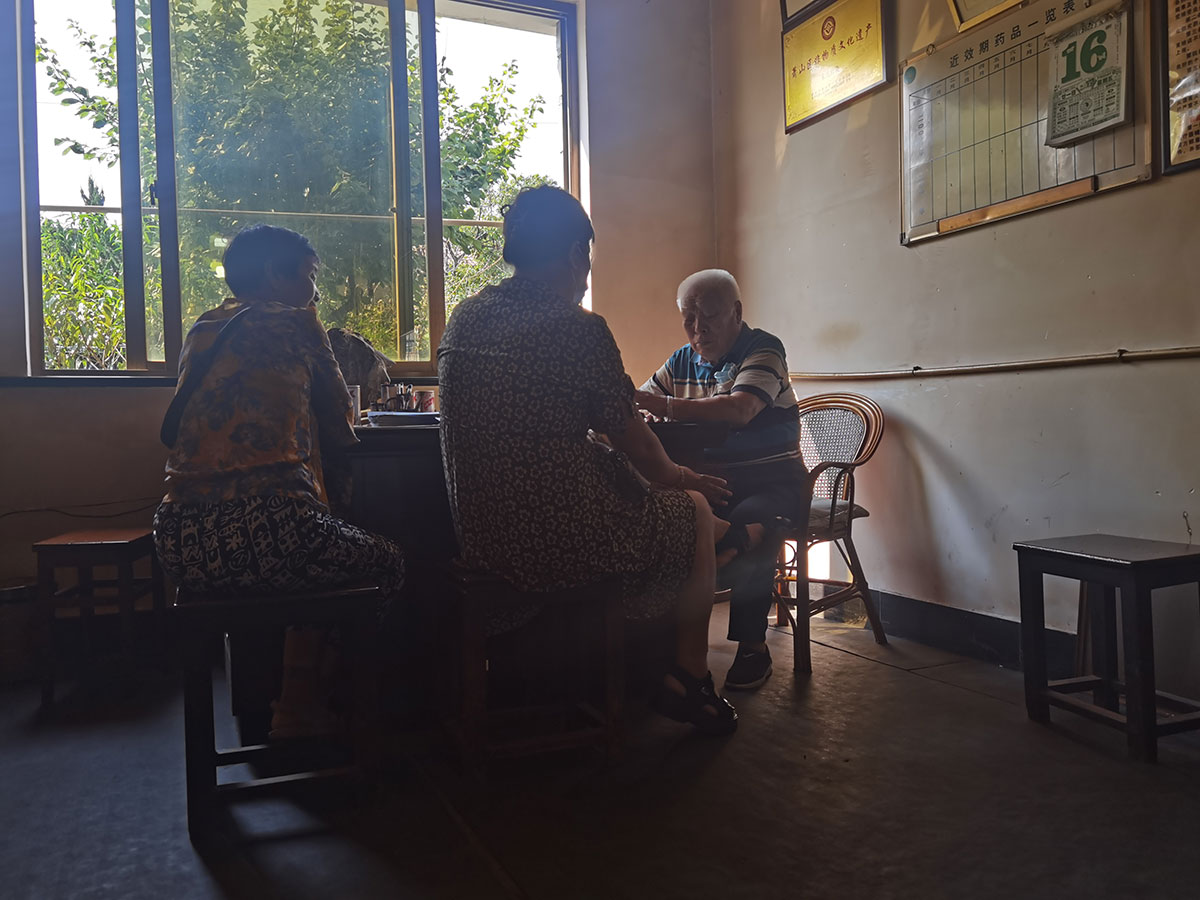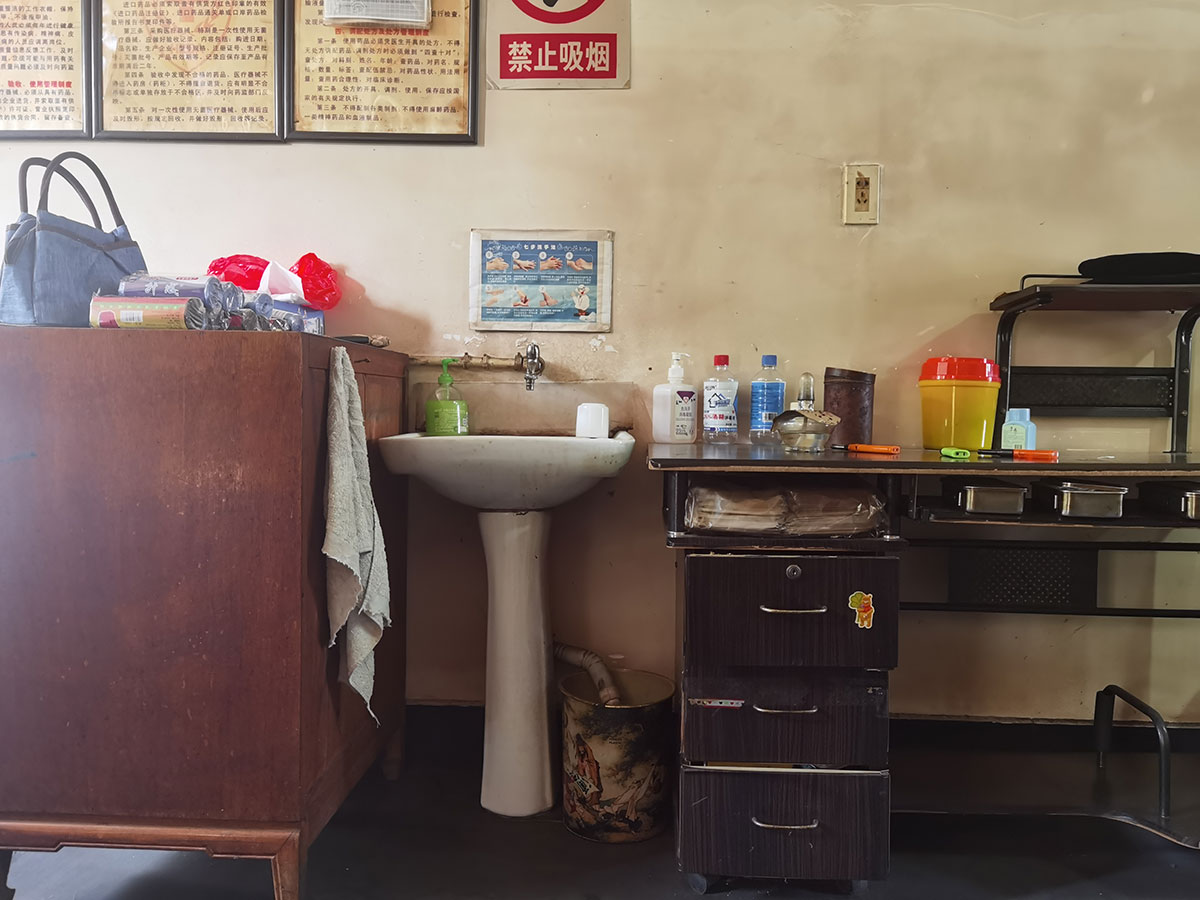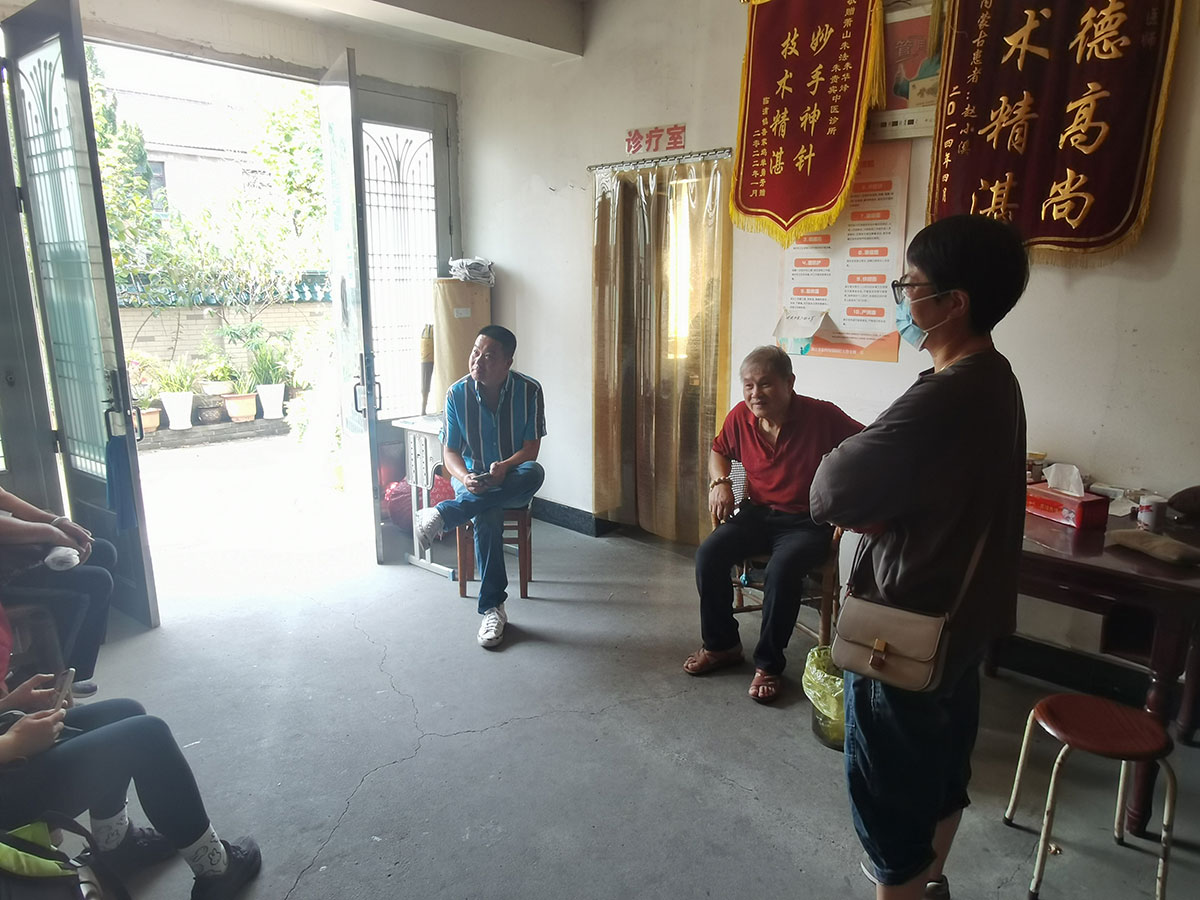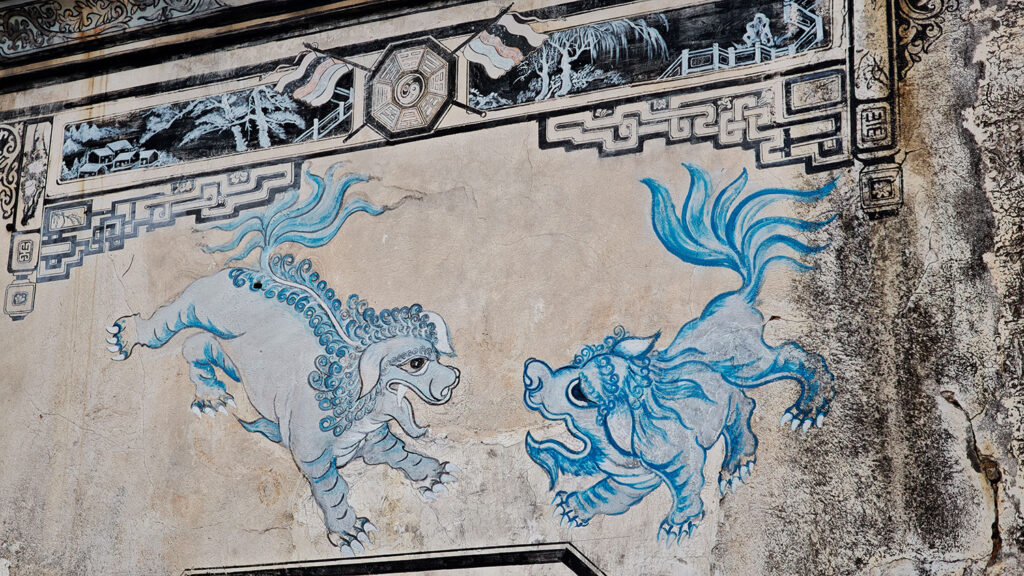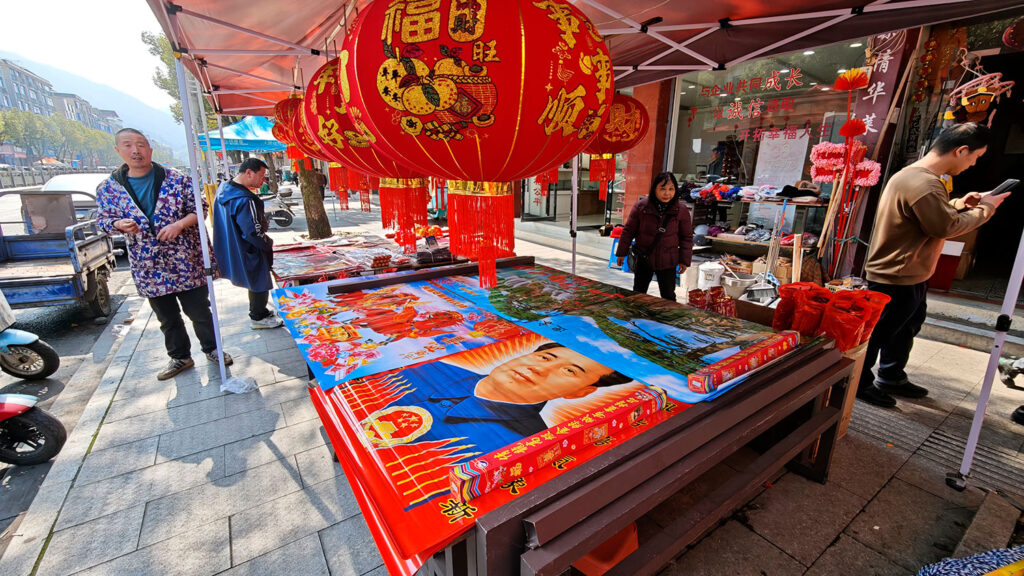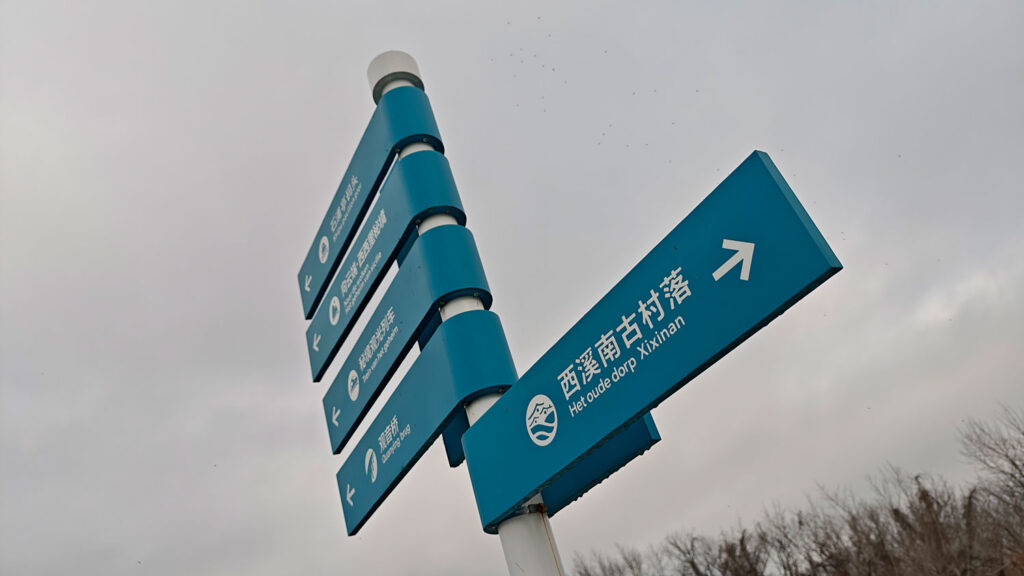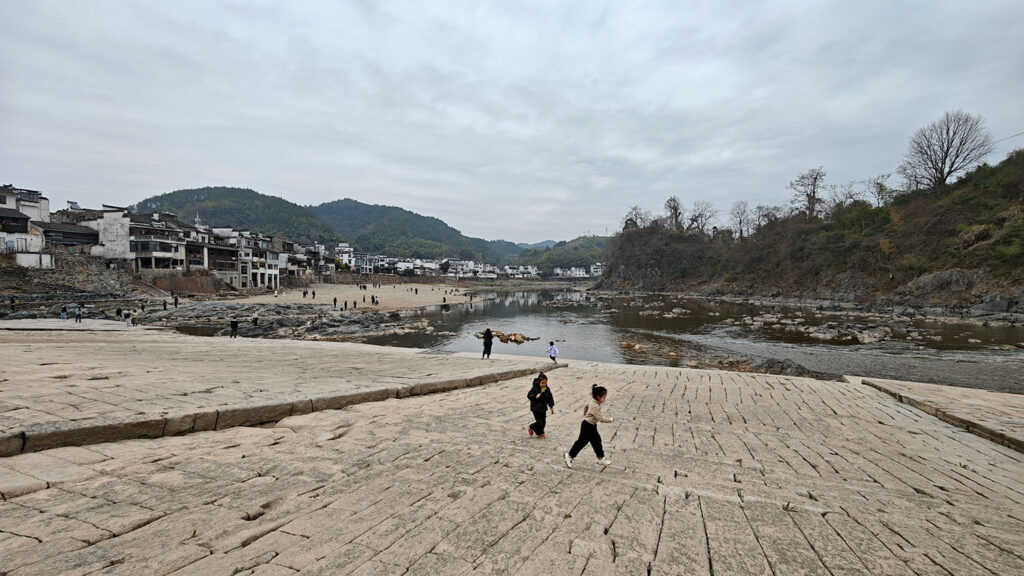We’re in Heshang (河上镇) — which basically means ’town on the river’ — and we’re here for the most famous of its 28,042 citizens: Mister Zhufa (朱法).
Zhufa is 86 years old but still works every day, and he’s so famous that people drive from nearby provinces to get his advice on Traditional Chinese medicine (TCM). Today we’re with guests (or should I call them patients, or customers?) from Shanghai, Jiangsu, Anhui, and Zhejiang.
There’s a waiting hall in front of the practice and from one guest it’s clear his eyesight is bad, another lady is missing an eye, a dad brings in a child, and several people are just here to chit-chat.
One middle-aged man tells us his neighbor had a painful leg, but was cured by Zhufa and now he walks again. When his dad started to have back pain they drove seven hundred kilometers from Anhui to get here. While he’s telling this, his dad lays on one of the three beds in the back of the practice with several acupuncture needles in his legs, with smoking leaves on the top of each needle.
Everyone here is on advice from a friend who was healed before. Several times I hear the idiom 慕名而来 (to come to a place on account of its reputation).
There’s a big table in the practice, within its center a newspaper from August (it’s now the latter half of September). Each new patient first has to put her or his arm on a tiny cushion, after which Zhufa puts two fingers on their wrist to check a pulse or maybe more. Sometimes one wrist suffices, sometimes the other wrist is needed for a definite verdict too. Zhufa asks questions about what the problem is, and whether there is stress, or other symptoms? He smiles a lot, especially when guests tell him about the friend that referred them, the friend that was healed by him. Zhufa asks where the patient has driven from. I’m not sure whether this is relevant for the patient, or whether it’s a form of honor that Zhufa bestows on himself.
And although people carry X-rays and printouts from hospitals, Zhufa barely looks at them. Usually, the wrists and questions suffice. Sometimes a patient is directed to one of the beds in the practice, sometimes he writes beautiful yet indecipherable characters on a paper — a list of ten to twenty herbs to buy in a Chinese medicine store. “Put them in a teapot, boil them and drink it after breakfast and dinner, so twice a day for a week”, says Zhufa.
There’s no privacy — as per usual in Chinese hospitals. Problems from patients are discussed in the open, with other guests listening in and sometimes even joining the discussion. The guy from Anhui nods to something Zhufa says, an auntie says that’s also what helped her relative.
But does it actually work?
If you asked the Jaap who arrived in China for the first time in 2017, the answer you’d hear would be a convincing no — because for skeptical people (or people who have never lived in China) it’s easy to dismiss Chinese medicine. The first paragraph of its Wikipedia entry includes some of the usual China-hate you often read online: “It has been described as “fraught with pseudoscience”, with the majority of its treatments appearing to have no logical mechanism of action.”
But now? I’m more confident there’s some benefit in some TCM, but at the same time; TCM is such an enormous term, it’s like asking whether food is healthy or not. Birds nests, tiger bones, seahorses or even more exotic organs — I’m not so sure. But there’s none of that in Heshang. Herbs to boil and drink, or acupuncture? Now the scope of TCM is much more limited and even more scientific as well (but its credibility is tainted by tiger bones and all). Plus the success stories are too plenty. Perhaps it’s partly also mental comfort — with a religious tint to it, as if the seven hundred kilometers of roads traveled from Anhui are an offering, to Zhufa the priest.
But writing this feels harsh and unfair. It could be us foreigners who don’t understand. Whereas Western medication usually works immediately, TCM is slow and sometimes preventive, thus harder to prove. Moreso, Zhufa has certification and several degrees hanging on his wall.
The guy from Anhui stands up, the sticks in his dad’s legs have finished. His dad pulls up his pants and puts on his belt. Zhufa says he cannot eat meat or drink any alcohol for a week. A whole week? Yes. The son pays 150 RMB, and father and son leave the practice, walking a bit more straight than as they came in.
